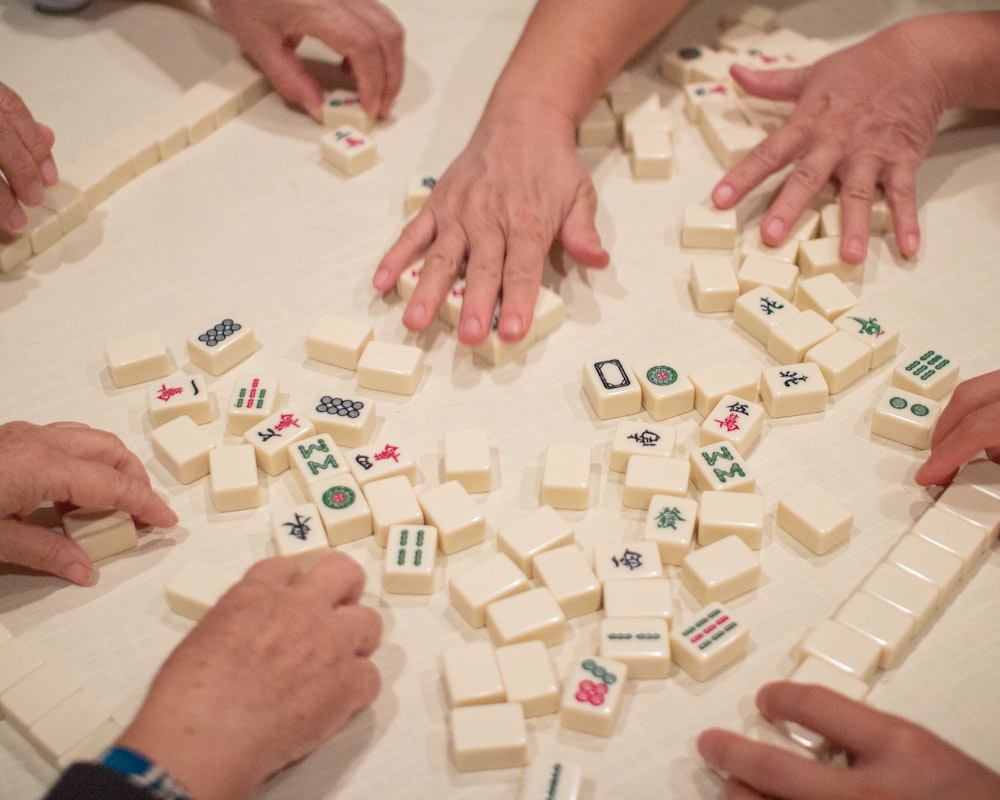Eastern Vs. Western Games Of Chance

Both the East and West are well-represented in games and, particularly, table games/games of chance. The East has its mahjong, and pachinko, while the West brings poker, baccarat, and bingo. Several people enjoy both, while some gamers prefer one over the other.
When comparing game philosophies, Eastern and Western games are as different as day and night.
Philosophy
One major difference between Eastern and Western games is the underlying philosophies practiced behind them.
In the West, you always tend to root for the underdog – and where games are involved, it also applies. More often than not, when you play Western games, and in games of chance like roulette, it tends to be very individualistic. Virtual bingo falls under the Western umbrella of games.
There, every man is out for himself. In some cases, being an underdog is also a narrative feature of Western games. In Western storytelling, it is easier to root for the underdog because the underdog’s victory is a powerful symbol of how people can overcome all the odds – and how it makes the victory they received even sweeter.
Another philosophy is the philosophy of the lone wolf. As earlier stated, Western values do tend to be more individualistic. When it comes to games, there is a touch of this. A lot of games of chance are played on an individual level.
On the other hand, Eastern values are communal and are high-context. Although not a lot of their games play as a team, the way their games are structured has a lot to say about their culture. Some of these indicate resourcefulness – and strategic value.
One such example of resourcefulness is how pachinko slowly evolved and emerged. In Japan, it is considered illegal to gamble for cash, so pachinko was invented. However, pachinko’s widespread popularity of low-stakes pachinko allowed a specific legal loophole in Japanese society. The loophole, then, allowed pachinko to continue existing.
The balls won from pachinko games cannot be removed from the premises where the game was held. In addition, you cannot trade them for cash. However, there is one thing you can do with them: trade them for “special prize” tokens. Then, after you get the tokens, you can exchange their tokens for cash.
In 2015, the pachinko market of Japan market produced more gambling revenue than the total revenue of Macau, Las Vegas, and Singapore combined.
Player Preferences
Next and last is the crucial player preference. Player preferences refer to the things the players like. Research shows that there is not much difference between the preferences of an online gamer and those of a gambler. The research, The Gambling Preferences and Behaviors of a Community Sample of Australian Regular Video Game Players showed that age was a significant factor in the correlation between gamers and gamblers.
Another study finding was that addiction level was a common factor between gamers and gamblers. According to the study, gambling involvement was discovered to be unpopular among those who enjoyed playing video games.
Wrapping Up
A crucial difference between gaming in the East and West is the philosophy that lies with them. When you play Western games of chance, it is easy to mark them out as Western ones because of their individualistic nature and more competitive rules and mechanics.
Discover more from Applygist Tech News
Subscribe to get the latest posts sent to your email.
